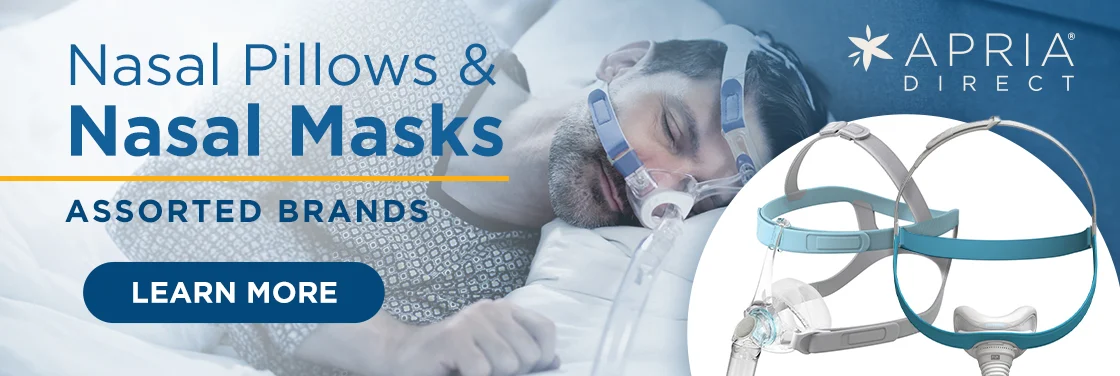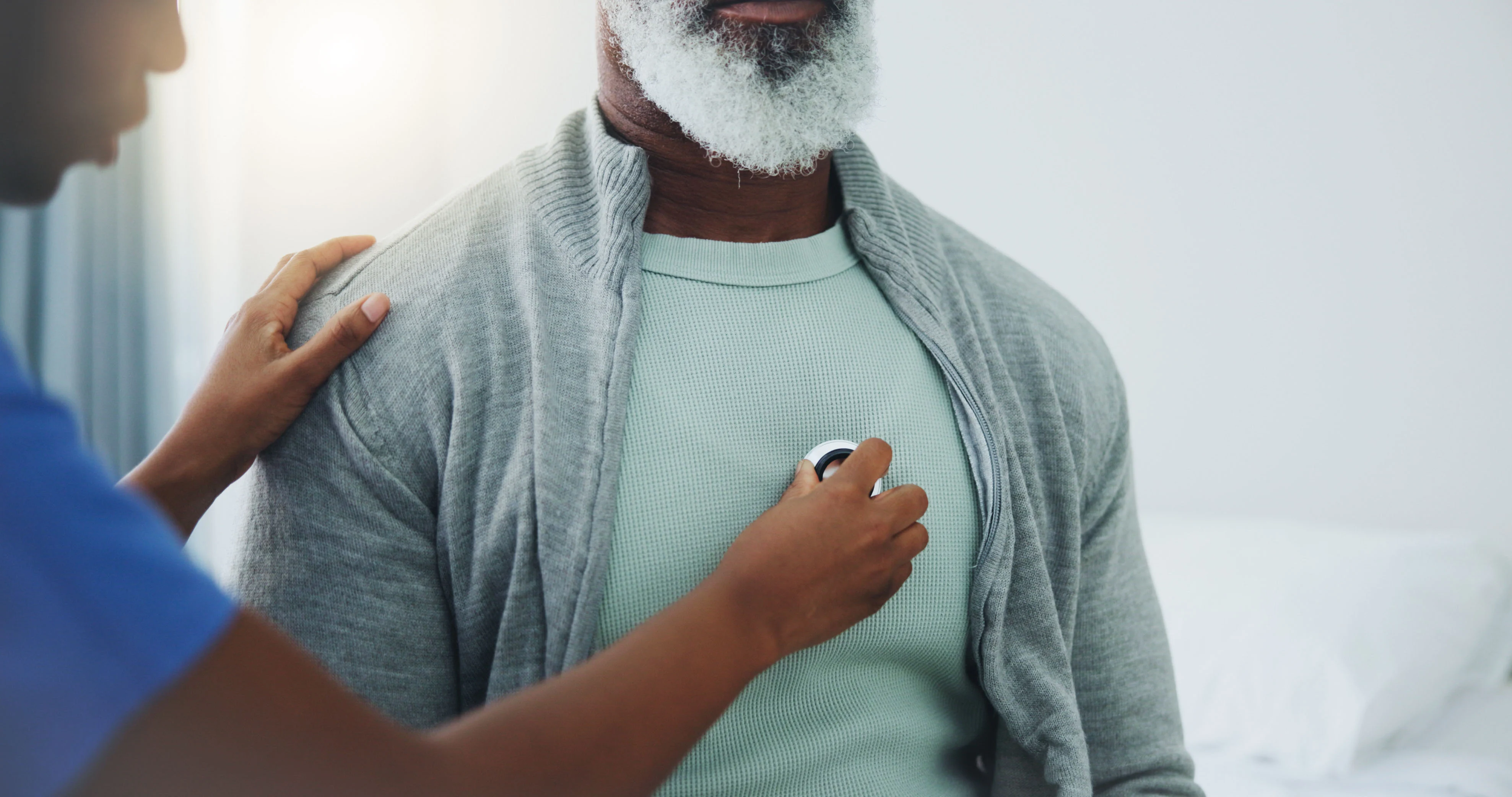Keep Your Beard or Mustache, Even if You Wear a CPAP Mask.
CPAP (continuous positive airway pressure) is the most widely used treatment for sleep apnea. However, people with facial hair—beards, mustaches, stubble—face specific challenges, primarily because of their CPAP mask:
- Facial hair may prevent a strong, secure seal of the mask, resulting in air leaks, which compromises therapy
- Some people loosen their mask to make it fit properly around their mouth and nose. But loose-fitting masks are more likely to leak and cause discomfort, which disrupts sleep
- The result: your CPAP therapy won’t effectively treat your sleep apnea, which can have long-term health consequences
So the question is: Can you use CPAP if you have a beard?
Yes! Here’s how.
What to Look for in a CPAP Mask for Beards
When selecting a CPAP mask, it’s important to consider the following:
It’s compatible with your CPAP prescription and device
Your doctor will prescribe the most appropriate pressure setting for your CPAP device and will recommend the proper mask for you.
You’ll also want to be sure your mask is compatible with your CPAP device and hose.
It’s the perfect size and fit
There are many styles and sizes of masks available. Work with your doctor to select the one that fits your face perfectly while accommodating your beard or mustache. This will reduce the risk of air leaks and help improve the quality and quantity of your sleep each night.
It’s comfortable
Comfort is key. A too-tight mask can cause pressure points that leave indentations or red marks on your face.
Today, most CPAP masks are constructed of silicone, which makes them soft, flexible, and easy to adjust.
To make sleeping even more comfortable, consider a CPAP pillow, which is designed to accommodate CPAP masks and hoses to let you move more freely as you sleep while preventing air leaks.
It fits your sleeping position
Some masks are more appropriate for certain sleeping positions. Your doctor will help you select the mask that’s right for you.
The 3 Best Masks for Beards and Mustaches
1. Nasal pillow masks
Nasal pillow masks are among the smallest, lightest, most compact masks available. And because they don’t touch the top of your lip, they have minimal contact with your beard and are less likely to be dislodged.
Nasal pillow masks feature a soft, silicone cushion that rests beneath your nose. Two inflatable pillows inserted into your nostrils deliver air pressure while creating a secure seal.
Nasal pillow masks can cause nasal dryness or irritation. If you are a mouth breather, you may need to wear a chinstrap to keep your mouth closed as you sleep.
Nasal pillow masks also may not be ideal for people who need high CPAP pressure settings.
2. Nasal masks
Nasal masks create a tight seal over your nose and upper lip. They are also compact, reducing contact with your beard and the chance of mask dislodgement.
In addition, nasal masks can withstand high CPAP pressure settings.
For people who breathe through their mouth, a chinstrap is recommended.
3. Full-face masks
If you find nasal pillow masks or nasal masks uncomfortable, full-face masks may be right for you. They are bigger and bulkier than the other options, but they cover your nose, mouth, and beard by securing under your chin to provide a firm seal that won’t slip.
Full-face masks are also a good choice if you breathe through your mouth.
One potential drawback: Some people feel claustrophobic wearing a full-face mask.
How You Can Ensure a Secure Mask Seal
Beyond getting a mask that’s the ideal size and fit for your face, there are other things to ensure a secure seal and avoid mask leaks.
Use mask liners
Made of cloth, liners provide an extra seal that also cushions the mask to increase comfort and reduce skin irritation and facial lines.
Trim your beard or moustache
Long facial hair will prevent your mask from fitting properly, so keep it trimmed, especially where the mask seals to your face.
Humidify
CPAP therapy can cause mouth and nose dryness, which is very uncomfortable if you have a beard. Using a humidifier will provide the moisture to prevent this.
For more information: Prevent CPAP Dryness.
Condition your beard
Conditioners keep wiry or abrasive beards soft to help achieve a firm seal.
Make Cleaning Routine
Over time, bacteria can form in your CPAP machine and mask, which can cause harmful respiratory infections. That’s why it’s important to regularly clean your CPAP device, mask, and all accessories.
Also, wash your face and beard every night before you don your mask, which removes dirt or oils that prevent a strong mask seal.
If you experience inflamed or irritated skin where your mask touches your face, you may want to consider comfort wraps along with mask liners for your mask that you wash regularly. These are easier to remove and clean than washing your full headgear.
For more information: What To Do and Not Do When Cleaning Your CPAP Machine and Accessories.
Keep Your Facial Hair
Speak with your doctor about the ideal CPAP mask that fits your face and facial hair. As a leader in the management of sleep apnea, Apria has assembled a team of sleep coaches who provide valuable information to help make your CPAP therapy a success. Please contact us with any questions you have.
References
1. Fountain, L. (Updated 2023, January 10). Best CPAP Mask for Beards. Sleep Foundation. https://www.sleepfoundation.org/best-cpap-mask/best-cpap-mask-for-beards.
2. Forshee, S. (2016, February 17). Solving a Hairy Predicament for Men with Obstructive Sleep Apnea. Sleep Review. https://sleepreviewmag.com/sleep-treatments/therapy-devices/cpap-pap-devices/solving-hairy-predicament-men-obstructive-sleep-apnea-mask-beard/.
3. Larson, J. (Updated 2022, August 23). Sleep Apnea Masks and Facial Hair: What to Know. Healthgrades. https://www.healthgrades.com/right-care/sleep-disorders/sleep-apnea-masks-and-facial-hair-what-to-know.
4. (Updated 2023, April 24). 6 Tips For Using CPAP Masks With Beards, Mustaches & More. Lofta. https://lofta.com/blogs/sleep-apnea/6-tips-for-using-cpap-masks-with-beards-mustaches-more.
LEGAL DISCLAIMER: Material in this newsletter is provided for general health education and informational purposes and to provide references to other resources only; it may not apply to you as an individual. While Apria Healthcare believes that the information provided through this communication is accurate and reliable, Apria Healthcare cannot and does not make any such guarantee. It is not intended to be a replacement for professional medical advice, evaluation, diagnosis, services or treatment (collectively, “medical treatment”). Please see your healthcare provider for medical treatment related to you and your specific health condition(s). Never disregard medical advice or delay seeking medical care because of something you have read on or accessed through this website. Reading this newsletter should not be construed to mean that you have a healthcare provider/patient relationship.


.png)



